
Kapa Island: The Hidden Gem of Tonga
Kapa Island is a serene paradise located in the Vava'u group of islands in Tonga. Known for its pristine beaches, crystal-clear waters, and vibrant marine life, Kapa Island offers a tranquil escape for those looking to unwind and reconnect with nature. As you arrive, you will be greeted by the lush greenery and the gentle sound of waves lapping against the shore, setting the stage for a truly relaxing experience. The island is a haven for snorkeling and diving enthusiasts, boasting some of the most spectacular coral reefs in the region. The underwater world around Kapa Island is teeming with colorful fish, sea turtles, and even the occasional whale shark. For those who prefer to stay above water, the island's calm bays are perfect for kayaking and paddleboarding. Adventurous visitors can explore the hidden caves and secluded coves that dot the coastline, each offering its own unique charm and beauty. In addition to its natural wonders, Kapa Island is rich in cultural heritage. The local Tongan community is warm and welcoming, often inviting tourists to participate in traditional ceremonies and feasts. You can learn about the island's history and customs while enjoying delicious local dishes made from fresh, locally-sourced ingredients. A visit to Kapa Island is not just a holiday; it's an immersive experience that will leave you with lasting memories and a deeper appreciation for the beauty and culture of Tonga.
Local tips in Kapa Island
- Visit during the dry season (May to October) for the best weather and clearer waters for snorkeling and diving.
- Bring your own snorkeling gear, as rental options on the island can be limited.
- Respect local customs and traditions, and consider participating in a traditional Tongan feast for an authentic experience.
- Pack eco-friendly sunscreen to protect the delicate coral reefs while enjoying the beach.
- Cash is king on Kapa Island. Make sure to bring enough local currency as ATMs are scarce.
Kapa Island: The Hidden Gem of Tonga
Kapa Island is a serene paradise located in the Vava'u group of islands in Tonga. Known for its pristine beaches, crystal-clear waters, and vibrant marine life, Kapa Island offers a tranquil escape for those looking to unwind and reconnect with nature. As you arrive, you will be greeted by the lush greenery and the gentle sound of waves lapping against the shore, setting the stage for a truly relaxing experience. The island is a haven for snorkeling and diving enthusiasts, boasting some of the most spectacular coral reefs in the region. The underwater world around Kapa Island is teeming with colorful fish, sea turtles, and even the occasional whale shark. For those who prefer to stay above water, the island's calm bays are perfect for kayaking and paddleboarding. Adventurous visitors can explore the hidden caves and secluded coves that dot the coastline, each offering its own unique charm and beauty. In addition to its natural wonders, Kapa Island is rich in cultural heritage. The local Tongan community is warm and welcoming, often inviting tourists to participate in traditional ceremonies and feasts. You can learn about the island's history and customs while enjoying delicious local dishes made from fresh, locally-sourced ingredients. A visit to Kapa Island is not just a holiday; it's an immersive experience that will leave you with lasting memories and a deeper appreciation for the beauty and culture of Tonga.
When is the best time to go to Kapa Island?
Iconic landmarks you can’t miss
Mapu'a Vaea Blowholes
Explore the breathtaking Mapu'a Vaea Blowholes in Tonga, where nature's raw power and stunning ocean views create an unforgettable experience for all visitors.
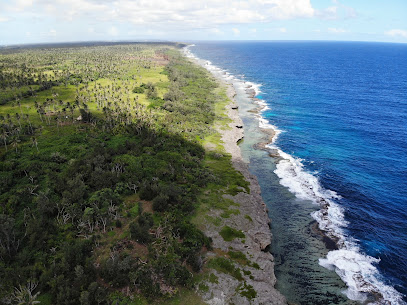
Tongatapu
Experience the stunning beauty and rich culture of Tongatapu, the largest island in the Kingdom of Tonga, a true paradise in the South Pacific.
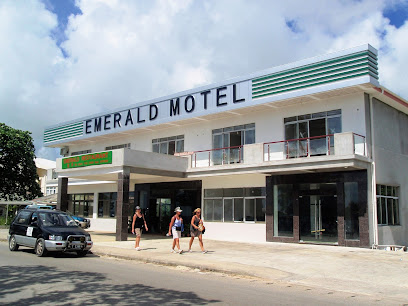
Royal Palace of Tonga
Explore the Royal Palace of Tonga, a historical gem in Nuku'alofa, embodying the rich cultural heritage of the Tongan monarchy.
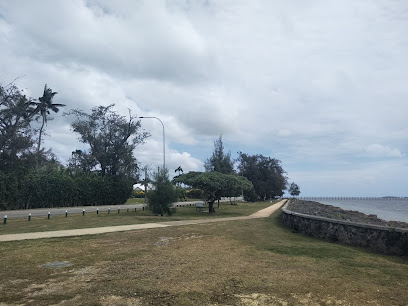
Anahulu Cave
Explore Anahulu Cave in Haveluliku, Tonga - a stunning natural wonder rich in history and perfect for a serene adventure amidst limestone formations.
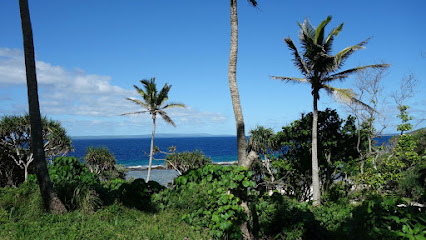
Royal Tombs
Explore the Royal Tombs in Nuku'alofa, a historical landmark that showcases Tonga's rich royal heritage and cultural significance amid lush landscapes.
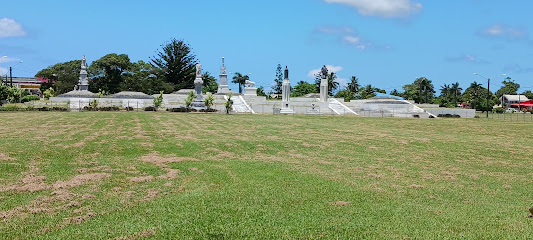
Tsunami Rock
Discover the beauty and cultural significance of Tsunami Rock, a remarkable landmark in Tonga that highlights nature's power and the resilience of its people.
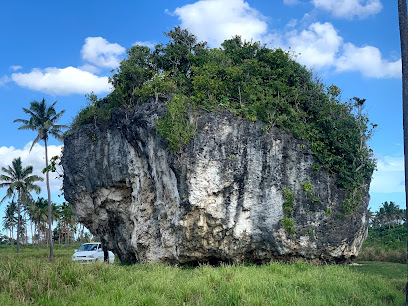
Ancient Tonga
Dive into the rich cultural heritage of Tonga at Ancient Tonga, a must-visit tourist attraction in Nuku'alofa showcasing traditional arts and history.
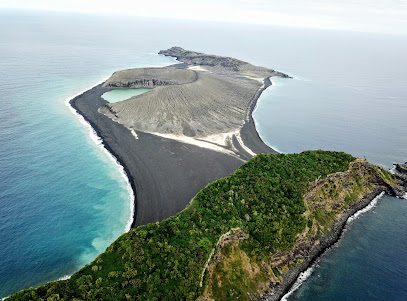
'Oholei Beach Resort
Experience the tropical charm of 'Oholei Beach Resort in Tonga, where luxury meets authentic island culture amidst stunning natural beauty.
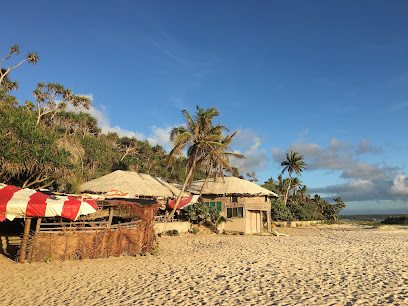
Ha'amonga 'a Maui Trilithon
Explore the Ha'amonga 'a Maui Trilithon, Tonga's ancient stone structure filled with history and breathtaking views, a must-see for every traveler.
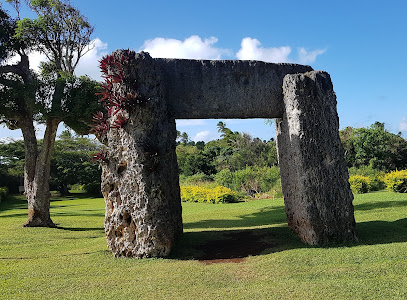
3 Headed Coconut
Experience the enchanting allure of the 3 Headed Coconut in Matahau, Tonga—a natural wonder that captures the heart and spirit of island life.
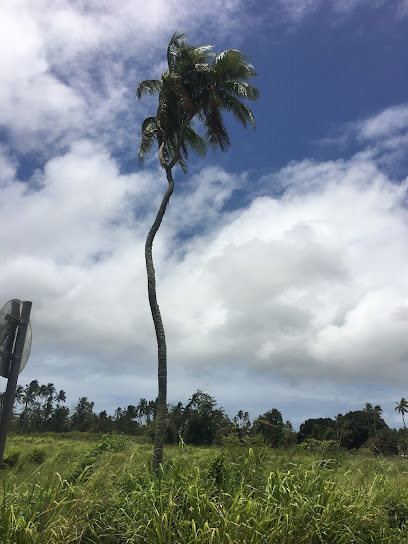
Vakaloa Beach Resort
Experience the tranquility and beauty of Vakaloa Beach Resort in Kanokupolu, where luxury meets Tongan culture for an unforgettable getaway.
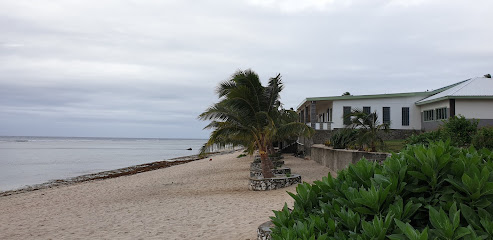
Winnies Bed & Breakfast
Experience the warm Tongan hospitality at Winnies Bed & Breakfast, your cozy retreat in the heart of Nuku'alofa surrounded by lush gardens.

House of Tonga
Discover the beauty of Tonga at the House of Tonga, your perfect base for exploring Nuku'alofa's culture, attractions, and stunning landscapes.

Deep Blue Diving
Explore the vibrant underwater world of Nuku'alofa with Deep Blue Diving, where adventure and marine beauty await every diver.
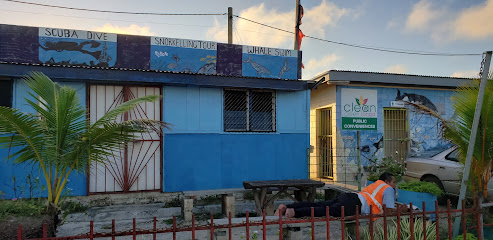
Captain Cook Landing Site
Discover the historical significance of Captain Cook Landing Site in Alaki, Tonga—a must-visit for history lovers and cultural enthusiasts.
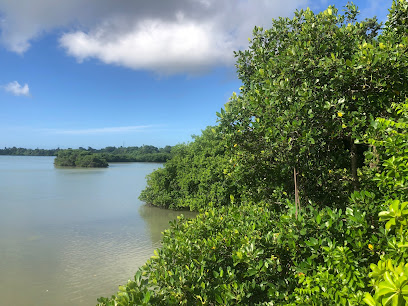
Essential places to dine
Little Italy Hotel
Discover the taste of Italy in the heart of Tonga at Little Italy Hotel—where comfort meets culinary excellence.

Friends Cafe
Discover authentic Tongan flavors at Friends Cafe in Nuku'alofa—where every meal is a taste of paradise.
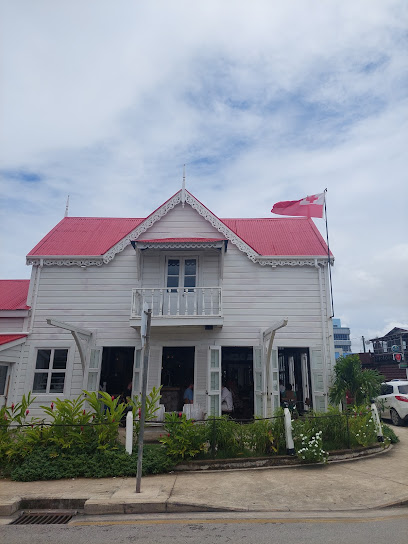
Cafe Escape
Experience delightful cuisine at Café Escape in Nuku'alofa - where every sip of coffee tells a story.
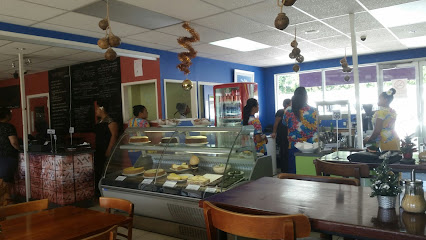
Seaview Lodge
Experience tranquility at Seaview Lodge in Nuku'alofa; enjoy breathtaking ocean views and immerse yourself in Tongan culture during your stay.

Chef Zero Restaurant
Experience authentic Tongan cuisine at Chef Zero Restaurant in Nuku'alofa - where local flavors meet culinary excellence.
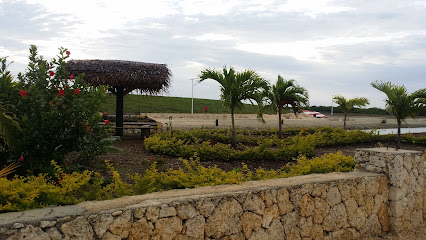
The TOP Restaurant and Lounge
Experience culinary excellence at The TOP Restaurant and Lounge in Nuku'alofa – where local flavors meet international flair.
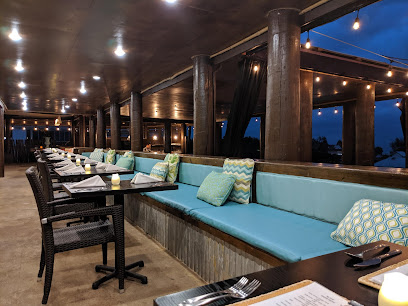
Mum's Cafe Nukualofa
Discover authentic Tongan flavors at Mum's Cafe in Nuku'alofa - where every meal tells a story.
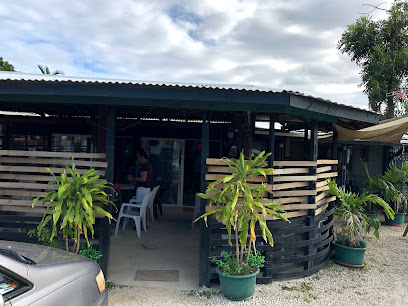
Vuna Wharf
Experience the vibrant culture and breathtaking views at Vuna Wharf, your gateway to exploring Tonga's stunning islands.
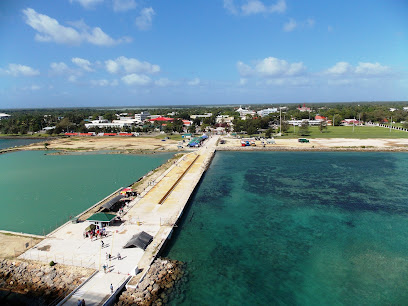
Vakaloa Beach Resort
Experience tropical bliss at Vakaloa Beach Resort in Kanokupolu - your perfect getaway with stunning ocean views and warm hospitality.
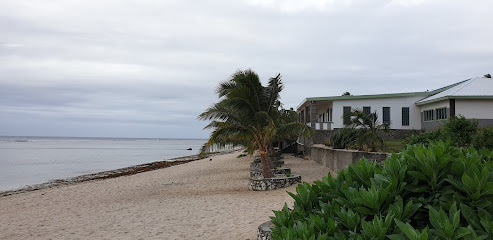
Lunarossa Deli
Discover the delightful fusion of Italian cuisine and local flavors at Lunarossa Deli in Nuku'alofa.
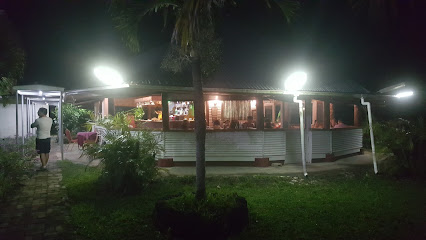
Ngutulei Bar & Restaurant
Experience authentic Tongan cuisine at Ngutulei Bar & Restaurant in Nuku'alofa – where local flavors meet warm hospitality.
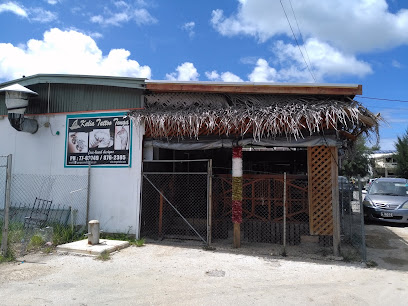
Katea Retreat
Experience tranquility and adventure at Katea Retreat in Nakolo - your perfect getaway in Tonga's breathtaking landscapes.

Young’s Kitchen
Experience authentic Tongan flavors at Young’s Kitchen, Nuku'alofa's hidden gem serving traditional dishes in a welcoming atmosphere.
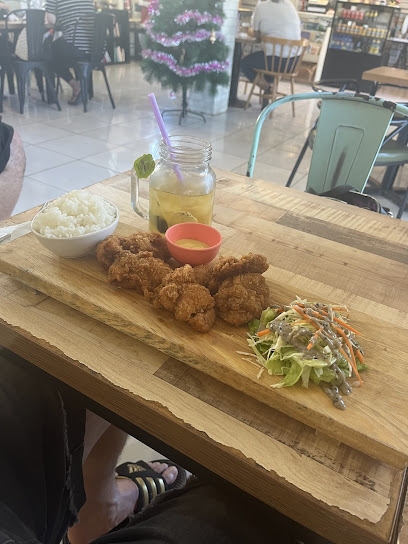
The Waterfront Cafe
Discover authentic Tongan flavors at The Waterfront Cafe in Nuku'alofa, where stunning ocean views meet delightful local cuisine.
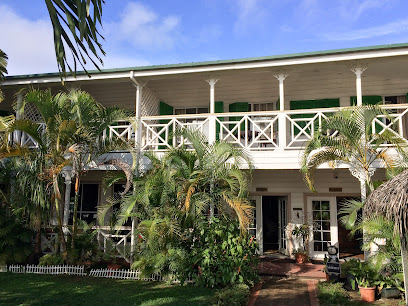
Frangipani - Korean Restaurant/Karaoke
Experience authentic Korean flavors paired with lively karaoke at Frangipani in Nuku'alofa – a culinary gem in Tonga.
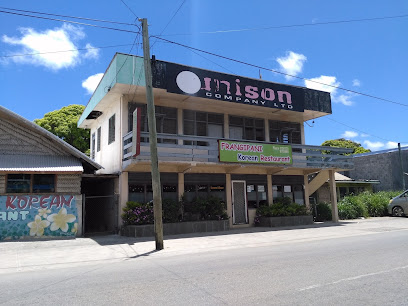
Markets, malls and hidden boutiques
Tanoa International Dateline Hotel
Discover the perfect blend of luxury and Tongan hospitality at Tanoa International Dateline Hotel in Nuku'alofa.

Fuaʻamotu International Airport (TBU)
Discover the beauty of Tonga as you arrive at Fuaʻamotu International Airport, your gateway to stunning islands and rich cultural experiences.
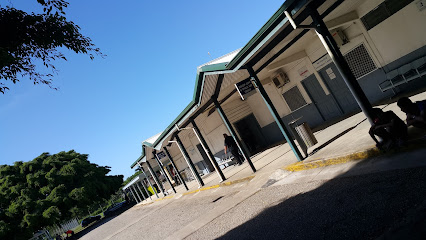
Ancient Tonga
Experience the rich history and vibrant culture of Tonga at Ancient Tonga, a must-visit attraction for every traveler.
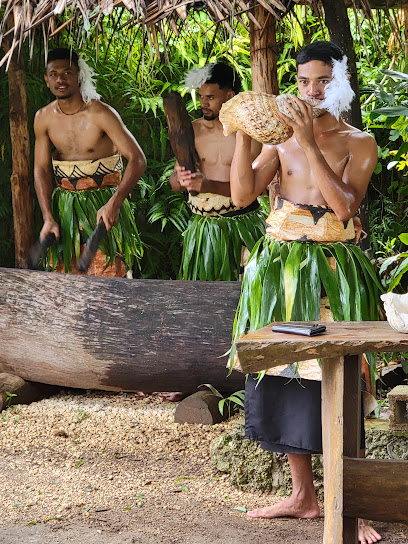
Talamahu Market
Discover the colorful and bustling Talamahu Market in Nuku'alofa, a vibrant hub of fresh produce, local crafts, and Tongan culture.
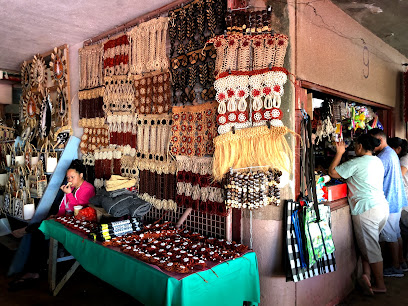
Vuna Wharf
Experience the beauty and culture of Vuna Wharf, the vibrant marina at the heart of Nuku'alofa, Tonga, perfect for explorers and adventurers.
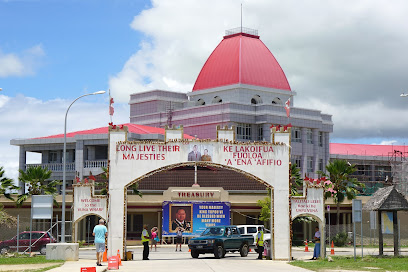
Costlow Supermarket
Discover the flavors of Tonga at Costlow Supermarket, where local delicacies meet everyday necessities in a vibrant shopping experience.
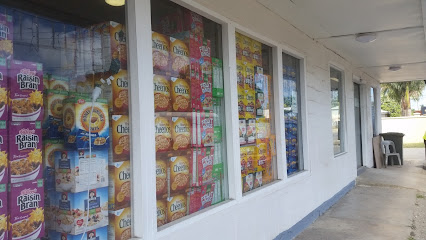
Molisi Supermarket
Explore Molisi Supermarket in Nuku'alofa for a taste of local Tongan culture with a wide selection of grocery and household products.
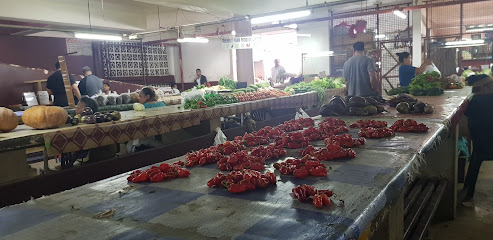
Backpackers Townhouse
Experience Nuku'alofa's charm at Backpackers Townhouse, a cozy bed and breakfast that feels like home while exploring the wonders of Tonga.

Si'i Kae Ola Supermarket
Discover the vibrant flavors of Tonga at Si'i Kae Ola Supermarket, where local culture meets a diverse selection of products in Nuku'alofa.
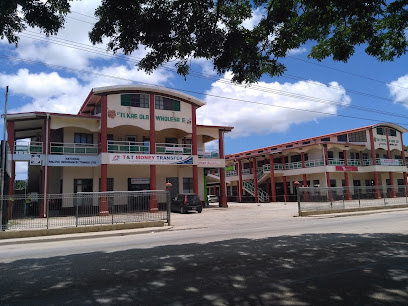
Langafonua Handicraft Centre and Gallery
Explore the vibrant arts and crafts of Tonga at Langafonua Handicraft Centre and Gallery, showcasing handmade treasures by local artisans.
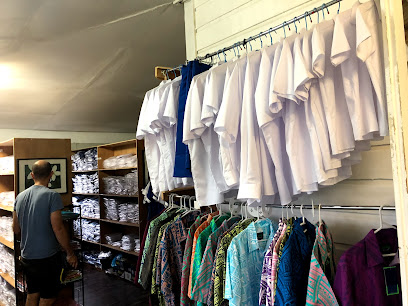
Friendly Island Bookshop
Explore Tongan culture through literature at Friendly Island Bookshop in Nuku'alofa, your gateway to the heart of Tonga's literary world.
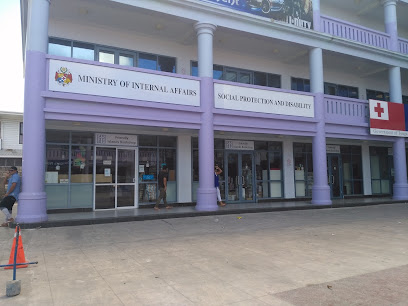
Whale Swim & Dive Tours
Explore the enchanting world of whales in Nuku'alofa with Whale Swim & Dive Tours, where adventure meets conservation in the heart of Tonga.
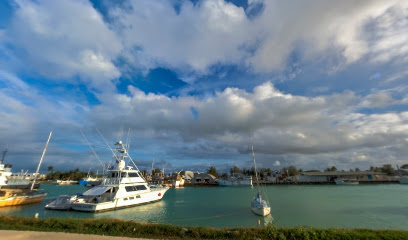
Fakafeta'i Store
Explore the heart of Tongan culture at Fakafeta'i Store in Nuku'alofa - where local goods meet authentic hospitality.
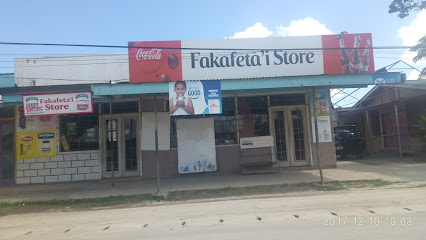
Leiola
Explore the finest selection of local and international beers at Leiola, Nuku'alofa's top beer store, perfect for every beer enthusiast.
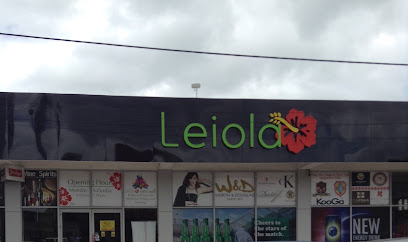
'Amanaki Lelei store
Discover the charm of Tongan craftsmanship at Amanaki Lelei Store in Veitongo, a vibrant shopping destination for unique local goods.
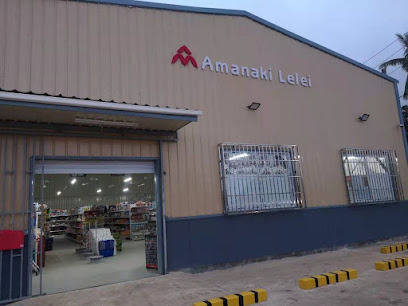
Essential bars & hidden hideouts
Tanoa International Dateline Hotel
Experience the essence of Tonga at Tanoa International Dateline Hotel, where comfort meets culture amidst stunning Pacific views.

Friends Cafe
Experience the vibrant flavors and welcoming ambiance of Friends Cafe in Nuku'alofa, where every meal is a delightful culinary journey.
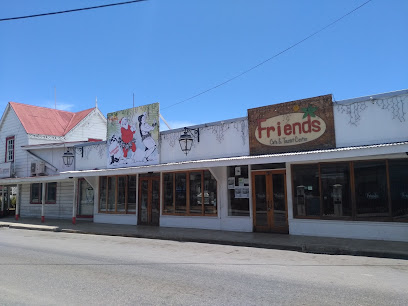
Cafe Escape
Discover the flavors of Tonga at Cafe Escape, where culinary delights meet a cozy atmosphere in the heart of Nuku'alofa.
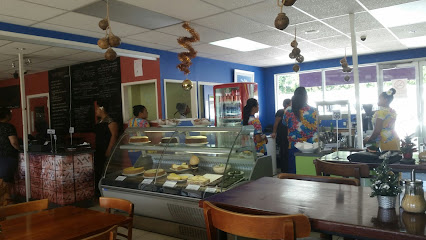
Billfish Bar and Restaurant
Experience the vibrant atmosphere and diverse flavors at Billfish Bar and Restaurant in Nuku'alofa, a culinary gem in Tonga.
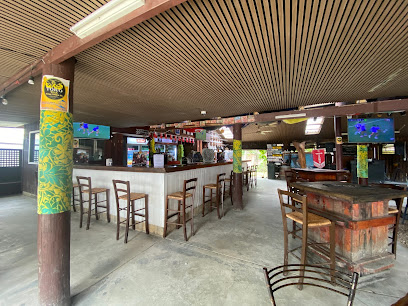
The TOP Restaurant and Lounge
Experience the authentic flavors of Tonga at The TOP Restaurant and Lounge, where traditional cuisine meets stunning views and a vibrant atmosphere.
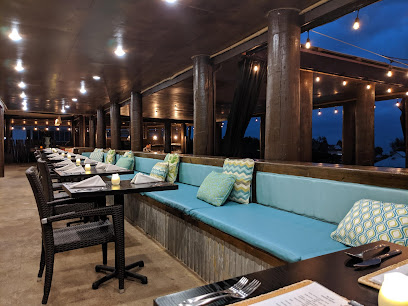
'Oholei Beach Resort
'Oholei Beach Resort: Experience the Beauty and Culture of Tonga in a Serene Beachfront Setting.
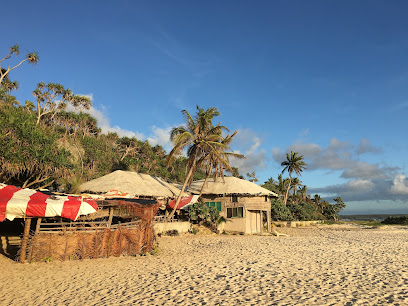
Lunarossa Deli
Discover the vibrant flavors of Tonga at Lunarossa Deli, a must-visit takeout restaurant in Nuku'alofa offering delicious meals to go.
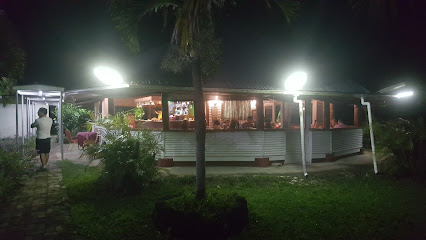
Young’s Kitchen
Experience authentic Tongan cuisine at Young’s Kitchen, where fresh flavors and local culture come together in a cozy dining atmosphere.
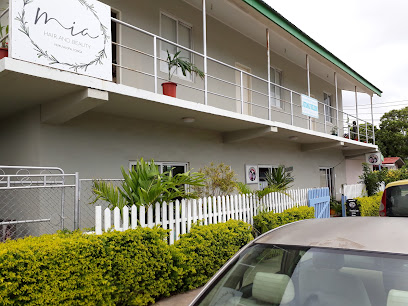
Nauti Ruby's Bar & Restaurant
Discover the vibrant atmosphere and delicious food at Nauti Ruby's Bar & Restaurant, a must-visit venue in Nuku'alofa, Tonga, perfect for tourists.
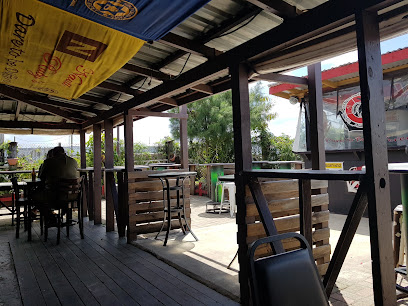
Reload Bar
Discover the vibrant nightlife at Reload Bar in Nuku'alofa, where culture meets entertainment in a lively, friendly atmosphere.
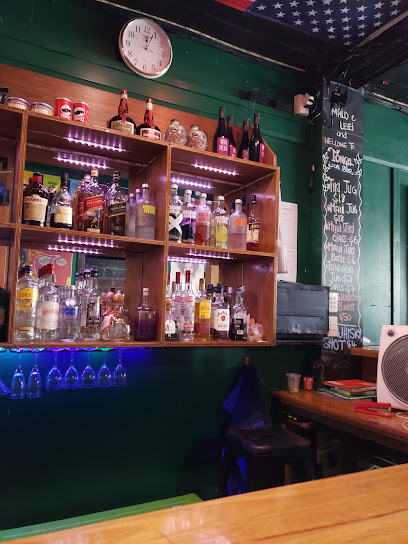
Tali'eva Inn Bar
Experience the lively ambiance and local hospitality at Tali'eva Inn Bar, a must-visit in Nuku'alofa for a taste of Tonga's vibrant culture.
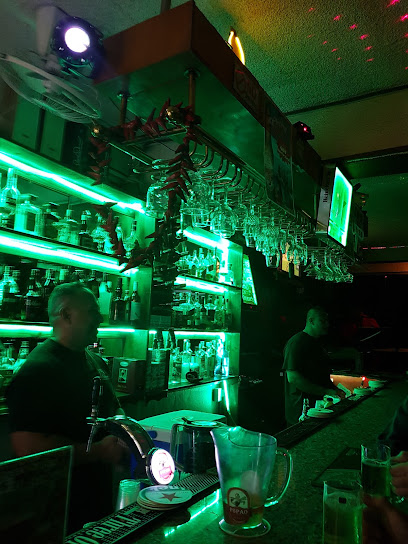
Big Mama's Bar
Experience the vibrant atmosphere of Big Mama's Bar on Pangaimotu Island, where tropical drinks and local culture come together for an unforgettable experience.
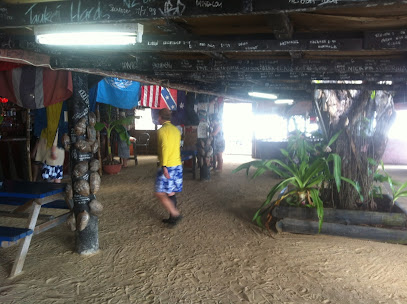
Kafataha Bong Club
Discover the vibrant nightlife and local culture at Kafataha Bong Club in Nuku'alofa, where friendly vibes and refreshing drinks await.

Local Phrases about Kapa Island
-
- HelloMalo e lelei
[mah-loh eh leh-leh] - GoodbyeNofo a
[noh-foh ah] - Yes‘Io
[ee-oh] - No‘Ikai
[ee-kai] - Please/You're welcomeFakafetai
[fah-kah-feh-tai] - Thank youMālō
[mah-loh] - Excuse me/SorryFakamolemole
[fah-kah-moh-leh-moh-leh] - How are you?ʻEku haʻu?
[eh-koo hah-oo] - Fine. And you?Lelei. Mo ʻoe?
[leh-lei. moh oh-eh] - Do you speak English?Ko e lea fakapalangi ʻoe?
[koh eh leh-ah fah-kah-pah-lahngi oh-eh] - I don't understandʻIkai haʻu
[ee-kai hah-oo]
- HelloMalo e lelei
-
- I'd like to see the menu, pleaseTeke lava ke ʻilo ha fakamatala, fakafetai
[teh-keh lah-vah keh ee-loh hah fah-kah-mah-tah-lah, fah-kah-feh-tai] - I don't eat meatʻIkai haʻu ʻai meʻa
[ee-kai hah-oo ah-ee meh-ah] - Cheers!Mālō!
[mah-loh] - I would like to pay, pleaseTeke lava ke totongi, fakafetai
[teh-keh lah-vah keh toh-tohn-gi, fah-kah-feh-tai]
- I'd like to see the menu, pleaseTeke lava ke ʻilo ha fakamatala, fakafetai
-
- Help!Fesoasoani!
[feh-soh-ah-soh-ah-nee] - Go away!ʻAlu atu!
[ah-loo ah-too] - Call the Police!Fakatokoni ʻe he polisi!
[fah-kah-toh-koh-nee eh heh poh-lee-see] - Call a doctor!Fakatokoni ʻe he toka!
[fah-kah-toh-koh-nee eh heh toh-kah] - I'm lostʻOku ou tala atu
[oh-koo oh tah-lah ah-too] - I'm illʻOku ou mate
[oh-koo oh mah-teh]
- Help!Fesoasoani!
-
- I'd like to buy...Teke lava ke fakafoʻi...
[teh-keh lah-vah keh fah-kah-foh-ee] - I'm just lookingʻOku ou ʻilo
[oh-koo oh ee-loh] - How much is it?ʻOku haʻu ke fakalakalaka?
[oh-koo hah-oo keh fah-kah-lah-kah-lah-kah] - That's too expensiveʻOku fakalakalaka
[oh-koo fah-kah-lah-kah-lah-kah] - Can you lower the price?ʻI he lelei teke fokotuʻu e lisi?
[ee heh leh-lei teh-keh foh-koh-too-oo eh lee-see]
- I'd like to buy...Teke lava ke fakafoʻi...
-
- What time is it?Koe haʻu ha he hola?
[koh-eh hah-oo hah heh hoh-lah] - It's one o'clockKoe taha e hola
[koh-eh tah-hah eh hoh-lah] - Half past (10)ʻE ua hengihengi (ʻuluhaʻa)
[eh oo-ah heh-ngi-heh-ngi oo-loo-hah-ah] - MorningFolaʻi
[foh-lah-ee] - AfternoonTokolahi
[toh-koh-lah-hee] - EveningAhiahi
[ah-hee-ah-hee] - YesterdayʻUa
[oo-ah] - TodayʻInasi
[ee-nah-see] - TomorrowʻApōpō
[ah-poh-poh] - 1Taha
[tah-hah] - 2Ua
[oo-ah] - 3Tolu
[toh-loo] - 4Fā
[fah] - 5Nima
[nee-mah] - 6Ono
[oh-no] - 7Fitu
[fee-too] - 8Valu
[vah-loo] - 9Hiva
[hee-vah] - 10ʻUluhaʻa
[oo-loo-hah-ah]
- What time is it?Koe haʻu ha he hola?
-
- Where's a/the...?Ko fe kakai...?
[koh feh kah-kai] - What's the address?Ko e tuʻaseni...
[koh eh too-ah-seh-nee] - Can you show me (on the map)?ʻI he lelei teke fakamāpu?
[ee heh leh-lei teh-keh fah-kah-mah-poo] - When's the next (bus)?Ko e hola mo e tahi...
[koh eh hoh-lah moh eh tah-hee] - A ticket (to ....)Tiketi (ki...)
[tee-keh-tee kee]
- Where's a/the...?Ko fe kakai...?
History of Kapa Island
-
Kapa Island, like much of Tonga, was first settled by the Lapita people around 900 BCE. The Lapita were skilled navigators who voyaged across vast stretches of the Pacific Ocean, bringing with them their distinctive pottery, intricate tattoos, and advanced agricultural practices. Archaeological evidence, such as remnants of ancient pottery and tools, provides insight into the lifestyle and culture of these early inhabitants.
-
In the late 18th century, European explorers began to arrive in Tonga, including Kapa Island. The most notable of these explorers was Captain James Cook, who visited the Tongan archipelago in 1773 and 1777. Cook named the islands the 'Friendly Islands' due to the warm reception he received from the locals. His journals provide some of the earliest written accounts of Tongan society and its intricate social structures.
-
The early 19th century saw the arrival of Christian missionaries on Kapa Island. Wesleyan missionaries from the London Missionary Society played a significant role in converting the Tongan people to Christianity. Their influence led to profound changes in local customs, education, and governance. Churches and mission schools were established, many of which remain integral to the island's community today.
-
During the mid-19th century, Tonga, including Kapa Island, was embroiled in a series of civil wars. These conflicts were primarily driven by power struggles among local chiefs and the influence of European powers. The wars culminated in the unification of Tonga under King George Tupou I in 1845. His reign marked the beginning of the modern Tongan kingdom and brought stability to the region.
-
In the late 19th and early 20th centuries, Tonga became a British protectorate, though it retained its own monarchy and government. The colonial period saw infrastructural development and increased interaction with the global economy. Tonga, including Kapa Island, gained full independence in 1970, and the island has since been a proud part of the sovereign Kingdom of Tonga.
-
Today, Kapa Island is a vibrant blend of tradition and modernity. The island's rich history is preserved through its cultural practices, festivals, and historical sites. Visitors can explore ancient archaeological sites, attend traditional ceremonies, and experience the warm hospitality of the Tongan people. The island's pristine beaches, lush landscapes, and crystal-clear waters continue to attract travelers from around the world.
Kapa Island Essentials
-
Kapa Island is part of the Vava'u group in Tonga. The most common way to reach Kapa is by first flying into Fua'amotu International Airport (TBU) on Tongatapu, the main island of Tonga. From there, you can catch a domestic flight to Vava'u's Lupepau'u Airport (VAV). Once in Vava'u, you can reach Kapa Island by boat. Several local operators offer boat transfers between the islands, and the trip typically takes around 30 minutes.
-
On Kapa Island, the primary mode of transportation is by boat or on foot. The island is relatively small, so walking is a practical way to get around. For exploring the surrounding areas, you can hire a boat from local operators. Make sure to arrange transportation in advance, as services may not always be readily available.
-
The official currency of Tonga is the Tongan Pa'anga (TOP). While some businesses on Kapa Island may accept credit cards, it is advisable to carry cash, especially for smaller vendors and services. There are no ATMs on Kapa Island, so ensure that you have sufficient cash before leaving Vava'u. Currency exchange services are available in Vava'u and Tongatapu.
-
Kapa Island is generally a safe destination for tourists. However, it is always wise to take standard safety precautions. Avoid leaving your belongings unattended on the beach or in public areas. There are no specific high-crime areas targeting tourists, but it is advisable to stay vigilant and aware of your surroundings.
-
In case of an emergency on Kapa Island, contact the local authorities or your accommodation provider for assistance. For medical emergencies, you may need to be transported to Vava'u, where there are more comprehensive medical facilities. It is highly recommended to have travel insurance that covers medical emergencies and evacuation. The emergency contact number in Tonga is 911.
-
Fashion: Do dress modestly, especially when visiting local villages or attending church services. Avoid wearing revealing clothing. Religion: Do respect local customs and traditions. Remove your shoes before entering homes and churches. Public Transport: Do be respectful and courteous to boat operators and fellow passengers. Greetings: Do greet people with a friendly 'Malo e lelei' (Hello). A smile and a slight nod are also appreciated. Eating & Drinking: Do try local dishes and accept food and drink offerings graciously. Don't refuse hospitality, as it is considered impolite.
-
To experience Kapa Island like a local, participate in community events and traditional feasts known as 'faka'apa'apa.' Engage with the residents, who are often eager to share their culture and traditions. Don't miss the opportunity to explore the island's natural beauty, including its pristine beaches and snorkeling spots. For a unique experience, visit the Swallows Cave, a popular spot for snorkeling and exploring.
Trending Landmarks in Kapa Island
Nearby Cities to Kapa Island
-
Things To Do in Ha'ano
-
Things To Do in Neiafu
-
Things To Do in Foa
-
Things To Do in Pangai
-
Things To Do in Nuku'alofa
-
Things To Do in Ha'apai
-
Things To Do in Vava'u
-
Things To Do in Kolovai
-
Things To Do in Levuka
-
Things To Do in Nausori
-
Things To Do in Suva
-
Things To Do in Rakiraki
-
Things To Do in Savusavu
-
Things To Do in Sigatoka
-
Things To Do in Labasa





